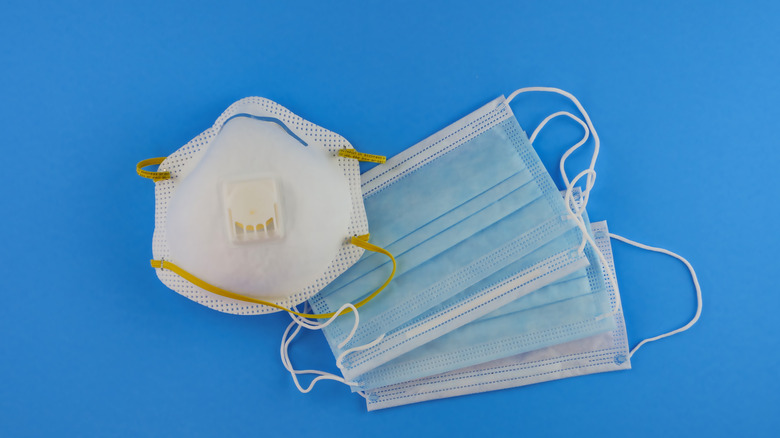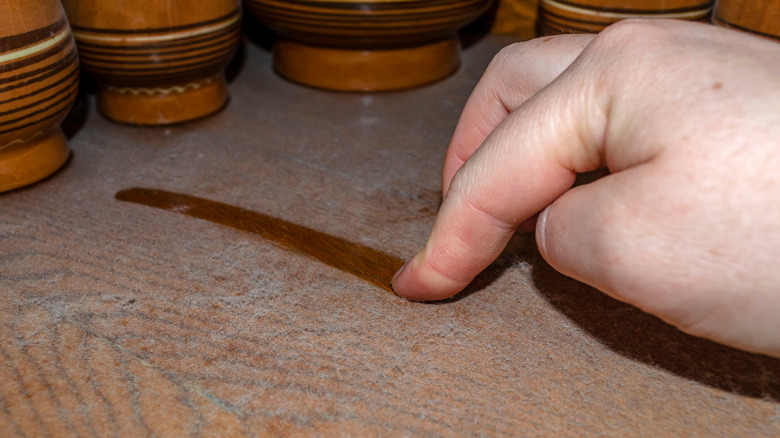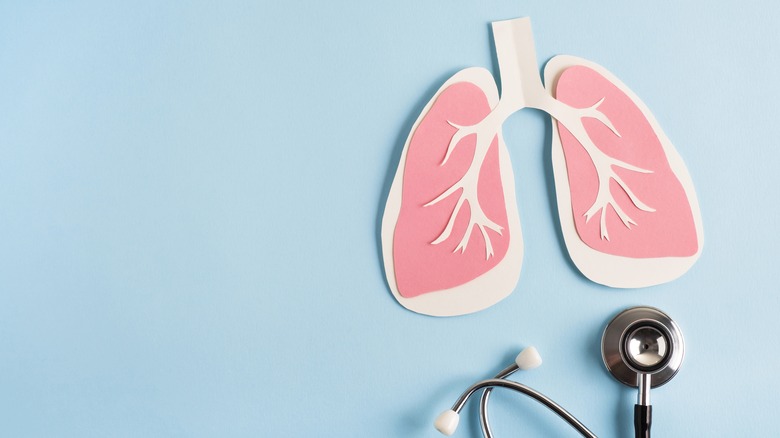The Most Important Place To Wear A Mask That You're Probably Missing
While face masks have become a standard (or, in many cases, essential) safety tool when venturing into crowded public spaces over the past couple of years, various other types of masks can be just as instrumental in keeping you safe while inside the house. Respirator and dust masks are especially useful when dealing with dangers in the home — for example, according to the epoxy chemical manufacturer, West System, both are highly recommended when working with resin.
That being said, you don't have to work with dangerous chemicals to inhale potentially damaging irritants. Depending on the state of your home (and the materials used to build and maintain it), you may be interacting with harmful substances more often than you'd assume. For example, according to Asbestos Nation, asbestos is still legal in the United States. While we'd recommend avoiding these substances and removing them if possible, we realize that wearing a mask in your house is far from practical. However, there is a far more realistic place where we'd highly recommend wearing a mask.
Using a mask when dealing with heavy dust
If you've got a particular area in your home that hasn't been touched in ages (and has developed a thick coat of dust), we'd highly recommend using a mask when cleaning it. Fortunately, as long as you are only worried about dust, a particulate filter mask (aka a dust filter mask) should be enough protection, according to Today's Homeowner. As a side note, if you are worried about other forms of dangerous materials (e.g., chemical vapor), you'll want to pick up a stronger mask for your own safety. However, a dust filter mask should be more than enough protection for your average dusty attic.
Although you may be tempted to use a cloth or surgical mask while cleaning an extremely dusty area, they aren't necessarily going to help. According to Wood, even the most well-fitting cloth and surgical masks still leave gaps along the sides that particles can enter through.
The dangers of dust particles
If you've cleaned a few dusty rooms before, you might be thinking, "what gives?" Sure, it can be uncomfortable to clean an extremely dusty room, and you're practically guaranteed to sneeze a few times, but it isn't that big of a deal, right? Well, not exactly. It turns out that inhaling dust can cause a lot of significant health issues.
Unsurprisingly, the biggest damage that dust causes is to your lungs. According to the Canadian Centre for Occupational Health and Safety, inhaling dust can cause inflammation and even scarring in your lungs. Additionally, it can lead to (or increase the likelihood of) several diseases. WebMD also warns that dust inhalation can lead to hypersensitivity pneumonitis, which is essentially an allergic reaction to the particles now in your lungs. And according to Dr. Panagis Galiatsatos in an interview with USA Today, breathing in too much dust can even put your life at risk if you suffer from asthma. With so many potential health risks, it only makes sense to wear an adequate mask when dealing with large amounts of dust.


